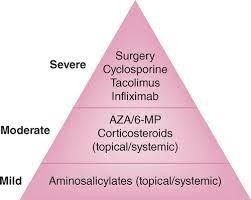A nurse is teaching the partner of a client who has a new diagnosis of Alzheimer's disease about home care. Which of the following information should the nurse include in the teaching?
"Keep the television on at a low volume in the background."
"Decorate your partner's room with abstract paintings."
"Reorient your partner daily to the day and time."
"Use dim lighting in your home."
The Correct Answer is A
Choice A rationale:
Keeping the television on at a low volume in the background can provide sensory stimulation and a familiar environment for the client with Alzheimer's disease. It can also help decrease feelings of isolation and confusion.
Choice B rationale:
Abstract paintings may be confusing or agitating for a person with Alzheimer's disease. Familiar and recognizable decorations are more suitable.
Choice C rationale:
Reorienting the client daily to the day and time can be helpful, but it is not the priority teaching in this context.
Choice D rationale:
Using dim lighting is not recommended as it can contribute to confusion and disorientation in a person with Alzheimer's disease. Adequate lighting is important for safety and orientation.
Nursing Test Bank
Naxlex Comprehensive Predictor Exams
Related Questions
Correct Answer is B
Explanation
Choice A rationale
Omeprazole is a proton pump inhibitor used to reduce stomach acid production and is not typically used for treating bloody stools in inflammatory bowel disease.
Choice B rationale:
Infliximab is used to treat inflammatory bowel disease and can help manage symptoms such as bloody stools by suppressing the inflammatory response.
Choice C rationale:
Ondansetron is an antiemetic used for nausea and vomiting, not related to bloody stools.
Choice D rationale:
Metoclopramide is used to treat nausea, vomiting, and gastrointestinal motility disorders, not specifically indicated for bloody stools.

Correct Answer is A
Explanation
Choice A rationale:
Tachycardia (rapid heart rate) is a common early indicator of excessive blood loss. It is the body's compensatory response to decrease in circulating blood volume.
Choice B rationale:
Flushed skin is not necessarily indicative of excessive blood loss. Pallor may be more characteristic.
Choice C rationale:
Polyuria (increased urine output) is not a reliable indicator of blood loss and is not commonly associated with postpartum hemorrhage.
Choice D rationale:
A firm fundus is a positive sign and indicates the uterus is contracting appropriately. It is not indicative of excessive blood loss.
Whether you are a student looking to ace your exams or a practicing nurse seeking to enhance your expertise , our nursing education contents will empower you with the confidence and competence to make a difference in the lives of patients and become a respected leader in the healthcare field.
Visit Naxlex, invest in your future and unlock endless possibilities with our unparalleled nursing education contents today
Report Wrong Answer on the Current Question
Do you disagree with the answer? If yes, what is your expected answer? Explain.
Kindly be descriptive with the issue you are facing.
